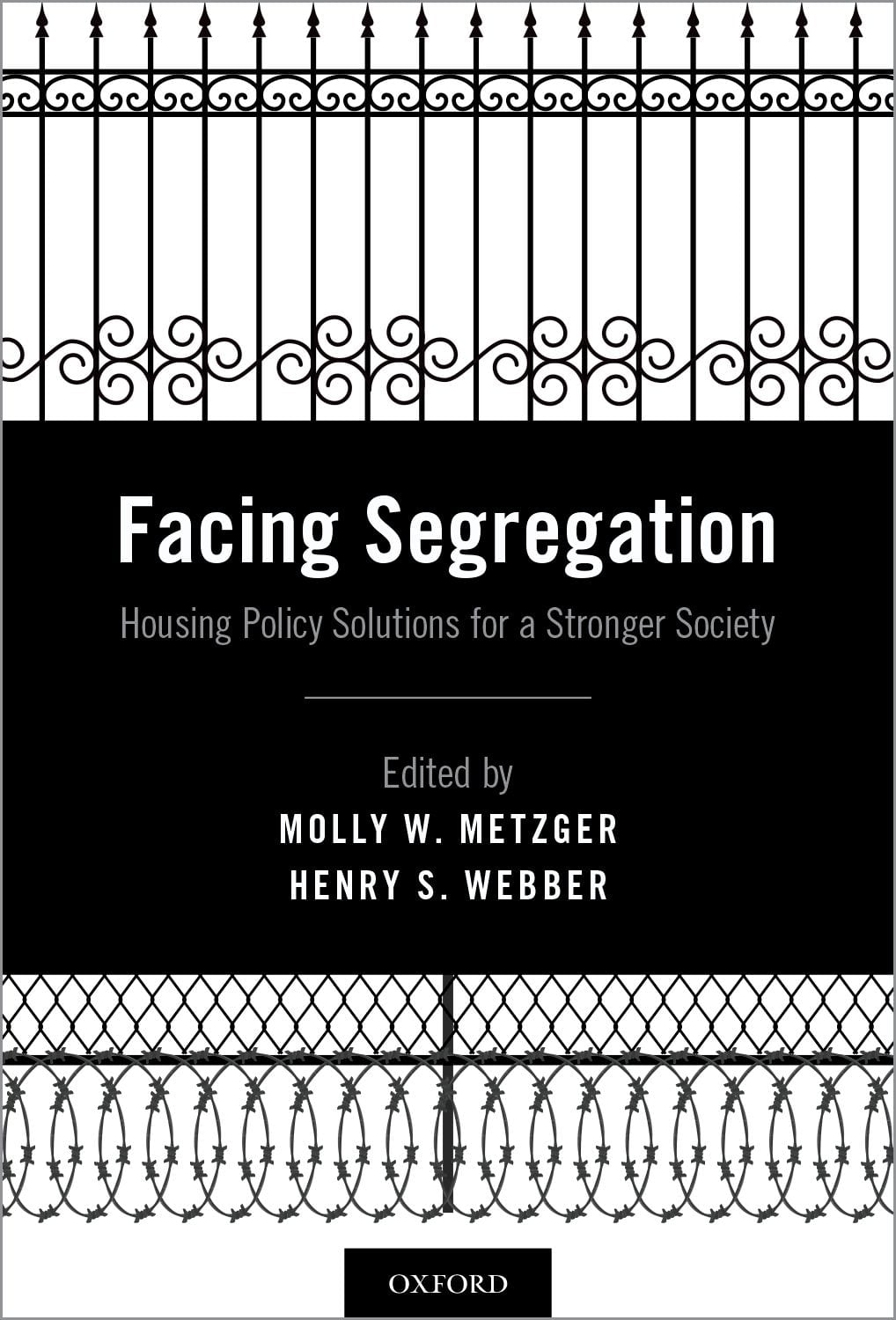Marking 50 years since the passage of the Fair Housing and Civil Rights Acts, this collection both builds on and departs from two generations of scholarship on urban development and inequality. The volume’s contributors provide historical context for patterns of segregation in the United States and present arguments for bold new policy actions ranging from the local to the national. Evidence for the negative effects of segregation and concentrated poverty in America’s cities now exists in abundance. Poor and underrepresented communities in segregated urban housing markets suffer diminished outcomes in education, economic mobility, political participation, and physical and psychological health. Many of the aggravating factors underlying this inequity have persisted or even grown worse in recent decades. Yet the level of energy and attention devoted to them by local and national policymakers has ebbed significantly from the levels that inspired the landmark civil rights legislation of the 1960s. Facing Segregation refocuses attention on achievable solutions by providing not just an overview of this timely subject but a roadmap forward, as the twenty-first century assesses the successes and failures of the housing policies inherited from the twentieth. Instead of introducing new theories or empirical data sets describing the urban landscape, Metzger and Webber have gathered the field’s first collection of prescriptions for what ought to be done.
In my judgment, Facing Segregation: Housing Policy Solutions for a Stronger Society is an excellent volume of essays on pragmatic, evidence-based policy prescriptions for combatting racial and economic residential segregation in the United States. Editors Molly W. Metzger and Henry S. Webber have assembled a cohesive, complementary, and comprehensive collection of background essays and forward thinking policy proposals. Taken together, this book joins Alex Schwartz’s Housing Policy in the United States, Greg Squires’s edited volume The Fight for Fair Housing, and Edward Goetz’s The One-Way Street of Integration in providing scholars, educators, and students an array of cogent analyses of the past, present, and hopeful future of American housing policy.
Review by Jeffrey M. Timberlake
Contemporary Sociology
With so many excellent compilations coinciding with or commemorating the fiftieth anniversary of the Fair Housing Act, Facing Segregation is a compelling volume. . . . several features of this book strike me as exceptional, noteworthy, and, indeed, inspiring.
Review by Stacy Seicshnaydre
Journal of Affordable Housing and Community Development Law
Facing Segregation is an excellent primer on current policy possibilities to remedy racial and economic segregation in the U.S. The wide variety of perspectives and applied, solution-oriented focus make the volume a welcome new foundational text in the study of housing segregation and housing policy.
Review by Emily Tumpson Molina
City & Community
What is admirable about this volume is its emphasis upon proposed policy actions to address racial segregation rather than an emphasis on the negative impacts of racial segregation.
Review by W. Dennis Keating
Journal of Urban Affairs
Despite the evils of segregation or because of it, integration policy initiatives are halting and haphazard.
A new book, Facing Segregation: Housing Policy Solutions for a Stronger Society, edited by Molly M. Metzger and Henry S. Webber of Washington University in St. Louis, explores the history, impact, and policy solutions to racial segregation.
“Facing Down Segregation—Half-heartedly or With Steely Determination?” by Josh Silver
Shelterforce
In “Facing Segregation: Housing Policy Solutions for a Stronger Society,” Molly Metzger and Hank Webber have compiled a collection of essays that can help form the foundation for understanding our deeply divided landscape.…
Together, they ground the book in a simple premise: segregation harms everyone (though some in more obvious ways than others).…
This is often where the conversation ends, in retracing our troubled past. But “Facing Segregation” also draws the reader into current policy and prescriptions for positive change.
“Facing Segregation’ With Solutions,” by Clark Randall
St. Louis American
Project: Inclusive Housing; Livable Lives initiative
Citation
Metzger, M. W., & Webber, H. S. (Eds.). (2018). Facing segregation: Housing policy solutions for a stronger society. New York, NY: Oxford University Press.
